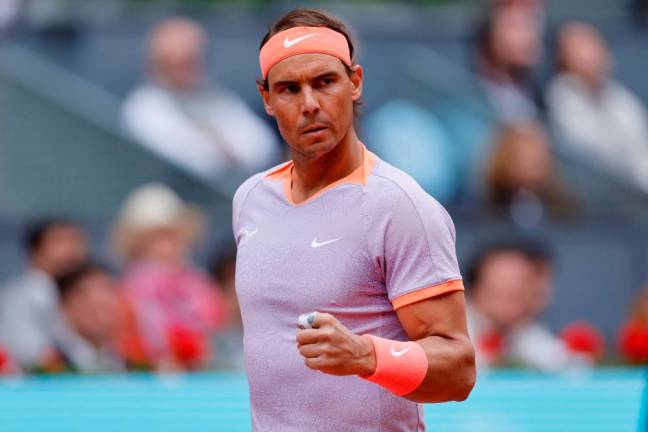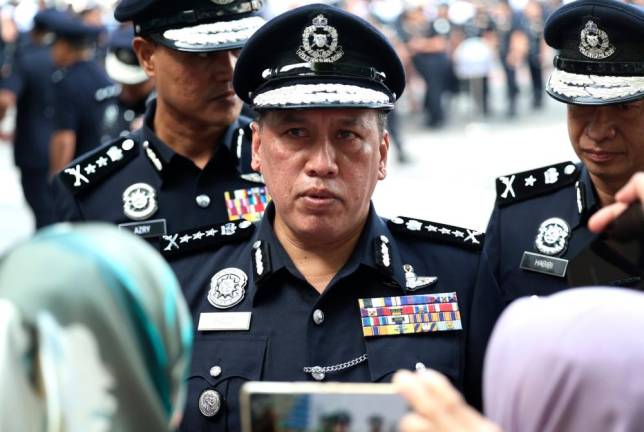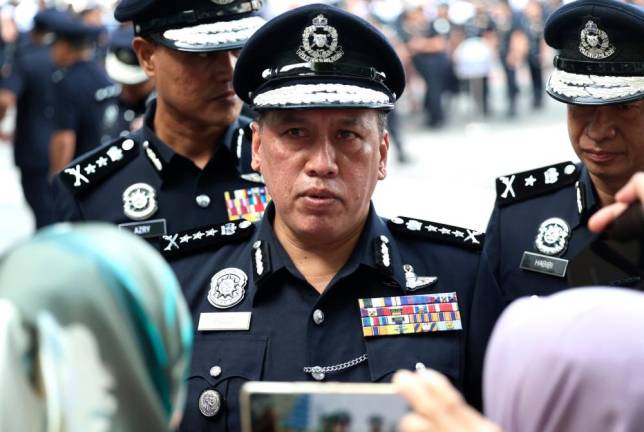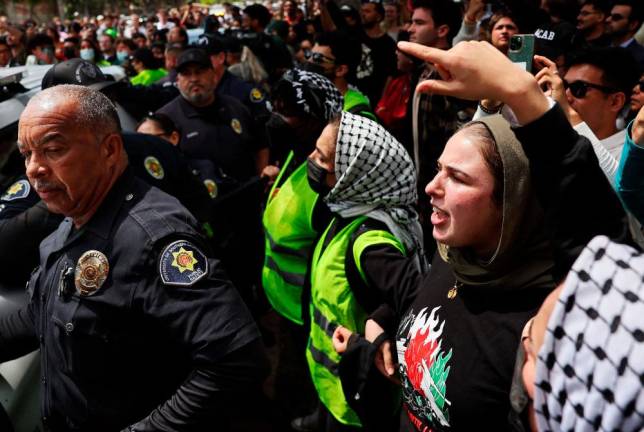EVERY voter in the 15th General Election (GE15) should muse over the sacrifice of Huminodun and decide which candidate on the ballot paper exemplifies her spirit of service unto death, hence deserving your “X”.
Kadazandusuns celebrate the legend of Huminodun, a virtuous maiden with total beauty of heart, mind and body, who willingly became an offering to the earth in a time of famine.
The purest of sacrifice, her immolation brought rain and a bountiful harvest that saved the people from starvation.
Every community in the world has a ritual of sacrifice.
Across the Pacific Ocean to South America, archaeologists have found evidence of child sacrifice as a ritual offering in the civilisations of the Aztec, Maya, Inca and Chimu that flourished before the arrival of European conquerors.
Alongside the skeletal remains of the children were the bones of llamas (a lamb-like animal) that were also sacrificed.
In China, archaeologists two years ago excavated a human skeleton in a sacrificial pit dating back to the late Shang Dynasty (1600BCE to 1046BCE).
The skeleton was in a kneeling position, with both hands crossed in front.
To avert Roman conquest, a Druid community on the Isle of Anglesey in Britain made an offering of healthy and strong youth in the year 47CE.
He was the tribe’s best young man. Nevertheless, Julius Caesar prevailed and described the blood-soaked ritual in his Gallic War.
Human sacrifice was conducted throughout the world in the distant past, as ancient societies bartered with God on the principle that just as “we give you the best of what we have, so you grant us salvation”.
Sometimes it is stated in reverse: God wants a human sacrifice.
The Jewish Book of Genesis recorded that God directed the patriarch, Abraham, to sacrifice his dear son Isaac as a burnt offering.
That was 4,000 years ago and no ancient listener of the scriptures could have failed to recognise the cultural and historical context of child sacrifice in Canaan.
The fact that Abraham was ready to make the sacrifice without voicing a murmur was a clear indication of his familiarity with this gory ritual.
However, at the sacrificial altar, Abraham gave the ritual a benign twist upon an order from God: instead of killing his son he caught a male sheep and made a burnt offering of it.
The switch away from human sacrifice also took place in other parts of the world, although there were still instances of it in the medieval era.
In 15th century Java, the youngest son of a Majapahit ruler threw himself down the crater of Mount Bromo to guarantee the prosperity of the Tengger people.
The tradition has changed to the offering of goats, chickens, fruits and vegetables thrown down the volcano at the yearly Yadnya Kasada festival.
The just-past widely celebrated Mid-Autumn Festival wasn’t just about consuming mooncakes and parading with lanterns.
Traditionalists make food offerings in the open accompanied by prayers to obtain good health, prosperity and success for their families and the nation.
But as early as 1000BCE, the Yajur Veda scripture of Hinduism had lifted the ritual of human sacrifice to a whole new level by spiritualising it into a metaphor.
The rite of human sacrifice described in the Purusamedha hymn entails binding the representatives of all classes, professions and trades to the sacrificial stake.
Humanity is thus one community offered symbolically to God and work becomes the loftiest human activity that must be performed in such a manner that it benefits society.
While the hymn includes such dazzling stars as priests, physicians and judges, its relevance is limited by the historical context.
There was no political class in the India of 3,000 years ago and hence there was no mention of politicians being tied to the stake and burnt alive.
Malaysia needs to create a ritual of political sacrifice to be instituted before GE15 if the nation is not to be sacrificed on the altar of politics.
A ritual provides a highly visible means of identifying who is a group member and who isn’t.
It helps define us as a group and demonstrates shared commitment to the group.
By creating a sense of cohesion, group bonding is ensured.
Keluarga Malaysia is our highest group bonding and to make this ideal come true there has to be a sacrifice of the best we have.
Since politicians regard themselves as the best in class, they must willingly adopt Huminodun’s spirit of sacrifice to the nation.
Instead, the nation is being sacrificed for political gain. This was evident even as far back as 2006 when a survey conducted by the Business Ethics Institute of Malaysia in collaboration with two institutions of higher learning found that the public trusted doctors the most and politicians the least.
Along with government ministers, politicians were rated at the bottom.
The key reason for the absence of calibre and integrity is that all politicians owe their first loyalty to the political parties that nominate them as candidates for election.
The party must win and at every election it declares war against political rivals.
In every election, the language that politicians use is those that soldiers learn: war mode, train your guns, sound the alarm, beat the war drums, get ready to fight, battle lines have been drawn, call out the troops, destroy the common enemy.
Who is the common enemy? Whoever a coalition of parties says is the enemy.
Come election time, a nation of peace turns into a nation filled with enemies – anybody who disagrees with you becomes the enemy.
Instead of ruffling us with their war talk, these politicians should contest in Ukraine.
A famous cartoon drawn in 2019 has a soldier on guard duty shouting out: “Halt! Who goes there, friend or foe?”
The response: “I don’t know. Who did you vote for?” The soldier remarks: “I hate politics!”
Last December at the National Unity Congress, Prime Minister Datuk Seri Ismail Sabri Yaakob explained why he had made political stability part of his three main agendas: “Previously, in Parliament, it was like a war from the beginning to the end, in addition to attacks through the media. After reaching an understanding with the Opposition, the situation is better even though the war of words still goes on.”
An Opposition is needed to give views and provide checks and balances, he concluded.
What is the ritual of sacrifice that our politicians must perform?
To start with, when they are picked as candidates, they must flash these words across their election banner: “May the better person win.”
It doesn’t matter which party the better person belongs to.
The party must no longer override the need to select the best candidates so that we can have people of calibre and integrity who are infused with the sacrificial spirit of Huminodun to serve in the Cabinet, Parliament and state legislative assemblies.
The writer champions interfaith harmony. Comments: letters@thesundaily.com










